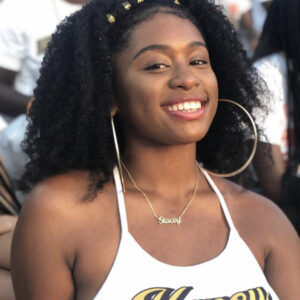
The term “good hair” represents the self-hate and desire to assimilate that creeps within the Black community. We have been conditioned to believe our God-given manes are bottom-tier and missed the cut for Western society’s beauty standards.
It’s an ignorance that has plagued us since the beginning of slavery in the Americas. During slavery, millions of female slaves were being raped by their masters, producing biracial children. Those children grew up to work in the house rather than in the fields.
Attributes such as their hair texture and lighter-skinned complexion gave them that privilege because they resembled more of a European than their counterparts. In that time, Blacks began to straighten their hair to conform and hatred of Afro hair spread like wildfire.
The manipulation begins at a very young age. Words like “nappy,” “unruly” and “difficult” were meant to degrade Black people, coaching them into the belief that only straight or biracial hair was “beautiful.” Tyraneshia Hoggan, a self-made businesswoman, recalls the views of natural Afro hair from her childhood. “Growing up in a house with a master cosmetologist in the late 90s, it was expected for you to have a perm. A perm meant “good hair,” Hoggan said. “Roots growing in for a couple of weeks without getting a relaxer got you labeled as nappy until you left the salon chair again.”
The Black community has made remarkable strides in the acceptance of Afro-textured hair. The initial wave emerged with the Black Panther Party in the 1960s. The revolutionary organization influenced people to wear their crowns boldly at a time it was heavily looked down upon. Over the years, it became normalized across the Black community and re-emerged stronger in the early 2000s. According to Mintel Press Office, statistics have shown hair relaxers sales have plummeted 38% between 2012 and 2017.
With natural hairstyles on the rise again, Black women have been fighting for inclusivity in Euro-dominant beauty norms, more specifically corporate beauty norms. A CNN study observed the biases made against Black hair in the workplace. Studies found that Black women with hairstyles including afros, twists or braids are less likely to get job interviews than white women or Black women with straightened hair. The discrimination Black women endure from potential employers and the public forces them to assimilate just to meet the standard.
Many factors play into the ignorance of what is considered “good hair.” No hair type is better than the other or less professional. We should not degrade somebody because their hair is different from someone else; we are all different. Hair is hair.